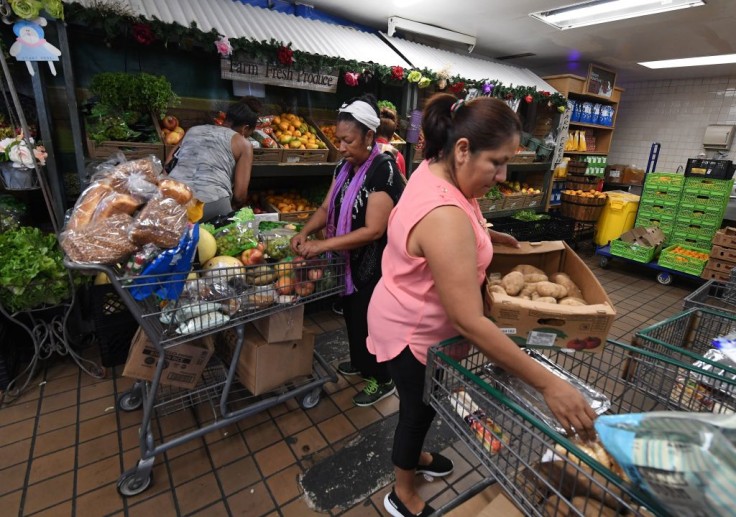
A recent report reveals that the expiration of federal pandemic aid, which had boosted food stamp benefits, is exacerbating food insecurity and poverty rates in the United States.
The study highlights the impact of the reduction in Supplemental Nutrition Assistance Program (SNAP) benefits and the uneven effects of food inflation on households of different income levels.
The findings raise concerns about the growing struggle to access affordable and nutritious food for low-income individuals and families.
SNAP Reductions Amplify Food Insecurity
As previously reported by CNN, federal pandemic aid designed to support individuals and families during the COVID-19 crisis expired, and analysts and advocates expressed concerns about the potential consequences for poverty alleviation and food security.
Those concerns are now being realized, as revealed by a recent report published by Morning Consult, a business intelligence firm.
According to consumer spending data analyzed by Morning Consult, 47% of households earning less than $50,000 per year reported receiving food benefits in May, representing a significant increase from the 39% reported in February.
This surge in reliance on food benefits can be attributed to the expiration of the emergency allotment, which resulted in a monthly payment decrease of at least $95 for recipients of the Supplemental Nutrition Assistance Program (SNAP) in 35 states and territories.
The report further highlights that while households earning more than $50,000 annually increased their grocery spending by approximately 9% over the past two months, those earning less than that actually decreased their food expenditure by around 3% during the same period.
This divergence suggests that food inflation is impacting individuals and families from different income brackets unequally, despite a slowdown in price increases across the economy.
Persistent Food Inflation and Its Consequences
The report underscores the persistent challenge of food inflation, as the cost of food consumed at home remained 5.8% higher than the previous year as of last month, exceeding the overall inflation rate of 4%.
According to CNBC, Sofia Baig, an economist at Morning Consult involved in the report, explains that ongoing inflationary pressures are straining household budgets, compelling individuals to rely more heavily on alternative sources of income to subsidize their grocery expenses.
The expiration of federal aid programs, including the boost to SNAP benefits, has had a significant impact on the economic well-being of low-income households.
In March, the average monthly SNAP benefit dropped to $204.54 from $248.93 in February, leaving more than 22 million enrolled households facing reduced support.
Policy Changes and the Road Ahead
This report emerges in the wake of a recent bipartisan debt-limit deal that introduced stricter work requirements for certain single SNAP recipients in their early 50s.
The deal, however, also relaxed requirements for veterans, homeless individuals, and youths aging out of foster care.
Critics of these changes argue that the findings of the Morning Consult report support their concerns regarding the ongoing efforts to restrict access to SNAP benefits at both the state and federal levels, which ultimately contribute to worsening food insecurity.
Ed Bolen, the director of SNAP state strategies at the Center on Budget and Policy Priorities, a left-of-center think tank, emphasizes the crucial role SNAP plays in supporting low-income households.
Conservative economists and policymakers who argue against generous SNAP assistance claim that such programs discourage workforce participation in a persistently hot labor market.
The uneven effects of food inflation and reduced support are leading to heightened concerns about rising poverty and hunger in the United States.
Policy analysts and anti-hunger advocates stress the importance of preserving access to SNAP benefits as a vital resource for vulnerable populations, emphasizing the need for ongoing efforts to address food insecurity and poverty comprehensively.